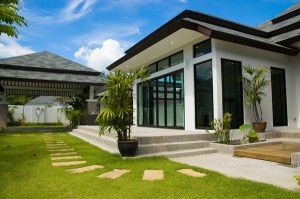Property leases are common in Thailand. Thailand’s strict regulations when in foreign ownership of land and related properties prompted many foreign nationals to consider the benefits of renting immovable assets in the region. On a closer look, leasing’s popularity in Pattaya can be attributed to several factors. First of all, leasing tends to be more cost effective or practical compared to purchasing properties.
In a lease, rental costs stay the same and are hardly affected by inflation rates. It salvages the lessee from the burden of increasing payments and fees. Secondly, a lease is yet another way for foreigners to freely utilize a property if purchasing problems are encountered. Lastly, rentals, depending on the agreement or contract made, can reduce the lessees’ expenses in terms of operational costs and tax payments.
Legalities of Pattaya leases
The provisions of the Hire of Property of Thailand’s Civil and Commercial Code, there are three types of properties that can be leased in the country. These are land, condominiums and residential units. Depending on the lessees and lessor’s preference, the lease can be either short or long-termed. In addition, all lease contracts should be put into writing to ensure that the agreements are legal and binding.
Generally, short-term leases or those that are below three (3) years do not have to be registered. However, for rentals that are longer than the above-mentioned, time frame, such should be registered at the Land Department. The failure to legally document such contracts forfeits the lessee’s chance to utilize the property for more than three (3) years.
All immovable property in Thailand can be leased for a maximum period of thirty (30) years. This period can be renewed twice, thus allowing tenants to retain their rights for a total of ninety (90) years. For lands utilized for industrial purposes, potential lessees can rent it for fifty (50) years. These can be also renewed. In the event where the owner sold the property, the lease remains valid.
Nevertheless, despite of the perceived benefits offered by Thai property leases, there are also some issues and technicalities that should be examined. One of this is the preservation of the tenant’s rights after thirty years. In many cases, uncontrollable circumstances such as the owner’s death for example, complicate the agreements validity. Thus, in such context, many opt to engage in lease agreements with Thai companies than in private citizens.
Summary
Foreigners wanting to own property in Thailand may consider leasing to meet their respective needs. Property leases are easier to process and even more practical than buying a condo unit. But in order to secure sound lease agreements, one should familiarize themselves with the legal provisions that govern such activities. Also, in endeavors such as this one, seeking the assistance of reputable law firms in Thailand is encouraged and recommended.

